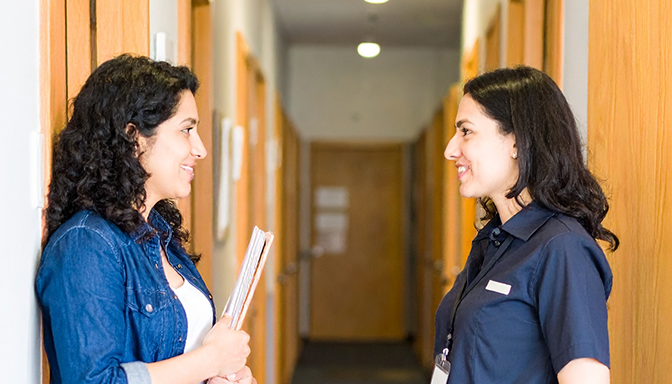6 Proven Strategies to Maintain High School Friendships in College
6 Proven Strategies to Maintain High School Friendships in College
Watching your friend group scatter across different colleges feels like watching your favorite TV show get canceled right before the season finale. One minute you’re all hanging out every weekend, sharing inside jokes, and planning your futures together, and the next minute everyone’s posting pictures from completely different places with completely new people. The fear that your closest friendships won’t survive the transition to college is real, and honestly, it’s one of the hardest parts of growing up.
Here’s what nobody tells you about high school friendships in college: some of them will fade naturally, and that’s okay. But the friendships that are truly meaningful – the ones built on genuine connection rather than just convenience and proximity – can absolutely survive and even grow stronger when you put in intentional effort to maintain them.
The key is understanding that college friendships require different maintenance than high school ones did. You can’t rely on seeing each other in the hallways every day or hanging out by default because you live in the same town. Long-distance friendships need more intention, better communication, and realistic expectations about how relationships evolve when people are growing and changing rapidly.
1. Accept That Some Distance is Normal (And Healthy)

The biggest mistake people make when trying to maintain high school friendships is panicking at the first sign of natural distance and trying to force the same level of constant contact you had when you saw each other every day. But here’s the reality: some space between you and your high school friends is actually healthy and necessary for everyone’s growth.
College is supposed to be about expanding your world, meeting new people, and discovering new aspects of yourself. If you’re spending all your time trying to recreate your high school social dynamic, you’re missing out on the opportunities right in front of you. Your high school friends are doing the same thing – exploring new interests, meeting new people, and figuring out who they are outside of their hometown context.
This doesn’t mean your friendships are doomed or that you don’t care about each other anymore. It means you’re both healthy, growing people who are taking advantage of new opportunities. The friendships that survive this natural growing period often come back stronger because they’re based on choice and genuine connection rather than just habit and proximity.
Healthy Distance Management:
- Don’t panic when daily communication naturally decreases
- Focus on quality interactions rather than constant contact
- Allow space for new experiences and friendships without guilt
- Trust that strong friendships can handle some natural separation
- Use distance as motivation to make your interactions more meaningful
- Resist the urge to guilt-trip friends for being busy with college life
Reframing Distance as Growth Opportunity
Instead of viewing decreased contact as a threat to your friendship, try seeing it as evidence that you’re both successfully engaging with your new environments. The friends who matter will make effort to stay connected when it counts, even if they’re not available for daily check-ins anymore.
Remember that healthy adult friendships involve periods of more and less intense contact, and learning to navigate this now prepares you for lifelong friendship maintenance.
2. Plan Intentional Catch-Up Sessions Instead of Random Texting

Random group chats and scattered text conversations might seem like they’re keeping you connected, but they often create more anxiety than actual closeness. When communication is sporadic and surface-level, it’s easy to feel like you’re drifting apart even when you’re technically “in touch.” The solution is replacing scattered communication with intentional, meaningful conversations.
Schedule regular video calls or phone conversations where you can actually catch up on what’s happening in each other’s lives. This might feel formal at first, but scheduled conversations ensure that you’re both mentally and emotionally available to connect rather than just sending distracted texts between classes.
During these intentional catch-ups, go deeper than just surface-level updates about classes and campus activities. Share what you’re learning about yourself, what’s challenging you, what’s exciting you, and how you’re changing. These conversations help you stay connected to who your friends are becoming, not just who they were in high school.
Intentional Communication Strategies:
- Schedule regular video calls or phone dates with individual friends
- Ask specific questions about their college experience and personal growth
- Share meaningful updates about your own life and development
- Focus on quality conversation rather than quantity of contact
- Plan group video calls for special occasions or regular check-ins
- Use voice messages for more personal communication than texting
Making Virtual Conversations Feel Natural
The key to successful long-distance friendship conversations is approaching them like you would in-person hangouts – with genuine curiosity and interest in your friend’s life. Ask follow-up questions, share stories, and let conversations flow naturally rather than sticking to a rigid agenda.
Don’t be afraid to have serious conversations about how you’re both adjusting to college life, what you’re struggling with, and how your friendship might need to evolve.
3. Create New Shared Experiences Despite the Distance

One of the hardest parts of maintaining high school friendships in college is that you’re no longer creating new memories together regularly. All your new experiences and inside jokes are happening with different people, which can make old friendships feel frozen in time. The solution is finding creative ways to create new shared experiences despite being physically apart.
This might mean watching movies together online, reading the same book and discussing it, playing online games, taking virtual tours of museums, or even cooking the same recipe while video chatting. The goal is continuing to build new memories and connections rather than just reliving old ones.
You can also plan coordinated experiences where you do the same activity at your respective colleges and then share your experiences with each other. Maybe you all try a new fitness class, attend a campus event, or explore a local coffee shop and then compare notes about your adventures.
Distance-Friendly Shared Activities:
- Online movie nights using streaming party apps
- Reading the same book or watching the same TV series
- Playing online games or mobile games together
- Virtual museum tours or online classes taken simultaneously
- Cooking or baking the same recipe while video chatting
- Coordinated campus adventures that you share with each other
Building New Traditions
Create new traditions that are specific to your long-distance friendship phase. Maybe you always call each other during finals week for moral support, send care packages during midterms, or have a group video call on everyone’s birthday. These new traditions acknowledge that your friendship is evolving while still maintaining connection.
The goal is proving to yourselves that you can continue growing together even when you’re growing apart geographically.
4. Be Honest About How You’re All Changing

One of the scariest parts of college is realizing that you and your friends are becoming different people than you were in high school. Maybe someone who was shy is becoming more outgoing, or someone who was always the leader is learning to be more collaborative. These changes can feel threatening to friendships, especially if you’re worried that growing means growing apart.
But here’s the truth: the friendships that last are the ones where people can be honest about how they’re changing and support each other’s growth rather than trying to keep everyone frozen in their high school roles. This means having conversations about new interests, different perspectives, and even shifts in values or priorities.
Don’t pretend to be exactly the same person you were in high school just to maintain friendship comfort. And don’t expect your friends to stay exactly the same either. The goal is getting to know and appreciate who you’re all becoming, which might actually make your friendships deeper and more interesting.
Growth-Supporting Communication:
- Share honestly about new interests and perspectives you’re developing
- Ask friends about how they feel they’re changing and growing
- Express excitement about positive changes you see in your friends
- Admit when you’re struggling with aspects of personal growth
- Discuss how your friendship might need to evolve to support who you’re becoming
- Be patient with friends who are exploring different aspects of their personality
Navigating Identity Shifts Together
College is when many people first have the freedom to explore different aspects of their personality without the constraints of high school social dynamics. Someone might discover they love theater, become passionate about social justice, or realize they want to pursue a completely different career path than they always planned.
Support these explorations in your friends while also being honest about your own identity shifts. The friends who truly care about you will be excited to see you becoming more yourself, even if that self is different than who you were at 17.
5. Make the Most of Holiday and Summer Reunions

The time you spend together during breaks and summer vacation becomes incredibly precious when you’re mostly apart during the school year. These reunions are your opportunity to reconnect in person, create new memories, and strengthen bonds that have been maintained mostly through screens and phone calls.
But here’s the trap many people fall into: trying to cram an entire semester’s worth of catching up and bonding into a few days or weeks together. This creates pressure for every reunion to be perfect and can lead to disappointment when the dynamic feels different than it used to. Instead, approach reunions with realistic expectations and intentional planning.
Don’t just default to doing exactly what you used to do together in high school. Create space for new activities that reflect who you’re all becoming while also including some nostalgic favorites. Most importantly, give yourselves time to just talk and reconnect without feeling like you need to be constantly entertained.
Strategic Reunion Planning:
- Plan a mix of group activities and one-on-one time with individual friends
- Include new experiences alongside nostalgic activities from high school
- Create space for deeper conversations about your college experiences
- Don’t over-schedule every moment together
- Take photos and create new memories rather than just reminiscing about old ones
- Be realistic about how much time you can spend together given everyone’s schedules
Managing Reunion Expectations
It’s normal for reunions to feel slightly different than your high school hangouts did, and that’s okay. You’ve all been having new experiences and meeting new people, so there might be some adjustment period as you reconnect. Don’t interpret this as a sign that your friendship is dying – interpret it as evidence that you’re all growing as individuals.
Focus on enjoying the time you have together rather than comparing it to how things used to be or worrying about how things might change in the future.
6. Stay Connected to Each Other’s New Lives Without Being Invasive

One of the challenges of long-distance friendship is feeling like you’re missing out on your friends’ daily lives and new experiences. Social media can help you stay aware of what’s happening, but it can also create anxiety when you see your friends having fun without you or forming new friendships that seem really close.
The key is finding the balance between staying informed about your friends’ lives and giving them space to have new experiences without feeling like they need to include you in everything. Follow their social media if that helps you feel connected, but don’t obsess over every post or feel threatened by their new friendships.
Remember that your friends having other close relationships doesn’t diminish their friendship with you. Just like you can love multiple family members without loving any of them less, people can have multiple meaningful friendships that serve different purposes in their lives.
Healthy Social Media Boundaries:
- Use social media to stay loosely informed but don’t analyze every post
- Comment supportively on major events and achievements
- Don’t feel obligated to like or comment on everything
- Ask about things you see on social media during your regular conversations
- Share your own college experiences without feeling like you’re competing
- Remember that social media shows highlights, not complete reality
Supporting Their New Friendships
When your friends talk about new people they’ve met and new friendships they’re forming, try to respond with genuine interest and excitement rather than jealousy or insecurity. Ask questions about their new friends, celebrate the fact that they’re building a good social support system, and share stories about your own new connections.
This doesn’t mean you have to be best friends with all their new friends or pretend you don’t sometimes feel a little jealous. It means recognizing that their ability to form new meaningful relationships is actually a good sign for your friendship too – it shows they value close connections and know how to maintain them.
Conclusion: Quality Over Quantity in Lifelong Friendships
Maintaining high school friendships through college isn’t about keeping everything exactly the same – it’s about allowing your relationships to evolve and grow along with you. The friendships that survive this transition are often the ones that become lifelong connections because they’re based on genuine care and compatibility rather than just shared history and convenience.
Not every high school friendship is meant to last forever, and that’s completely normal. People change, grow apart, and develop different interests and values. But the friends who make the effort to stay connected, support each other’s growth, and adapt to changing circumstances often become the people who stand up at your wedding and celebrate your major life milestones decades later.
Your High School Friendship Maintenance Plan
- Accept that some natural distance is healthy as you both grow and explore new opportunities
- Replace scattered communication with intentional, meaningful conversations
- Create new shared experiences and traditions that work for your long-distance dynamic
- Be honest about how you’re all changing and support each other’s personal growth
- Make the most of in-person reunions with realistic expectations and intentional planning
- Stay connected to each other’s new lives while respecting boundaries and new relationships
Remember: The goal isn’t to preserve your high school friendships in amber – it’s to let them evolve into adult friendships that enhance your lives and support your continued growth.
Affiliate Disclaimer: As an affiliate of other sites and as an Amazon Associate we earn from qualifying purchases. Some links in this article may be affiliate links where a purchase would provide us with a commission. We only recommend products and services we truly believe can help you on your personal growth journey.
Advice Disclaimer: This advice is for informational and entertainment purposes only and not a substitute for professional counseling, therapy, financial, legal, or medical advice. You are responsible for your own decisions and actions. For serious issues, please consult qualified professionals.
5 Ways to Navigate Roommate Drama Without Losing Your Mind
5 Ways to Navigate Roommate Drama Without Losing Your Mind
Living with roommates is like being in a reality TV show that never gets canceled – there’s always drama brewing, someone’s always leaving dishes in the sink, and you can’t vote anyone off the island. Whether you’re dealing with a roommate who treats the common areas like their personal storage unit or someone who thinks 2 AM is the perfect time for FaceTime calls with their ex, roommate conflicts can turn your living space from a sanctuary into a stress zone.
The thing about roommate drama is that it affects everything – your sleep, your study space, your social life, and your mental health. When you’re constantly walking on eggshells or dreading going home to your own place, it’s impossible to focus on the important stuff like classes, friendships, and figuring out your life. But here’s what most people don’t realize: most roommate problems aren’t actually about the dishes or the noise – they’re about communication, boundaries, and different expectations.
Learning to navigate roommate relationships successfully is actually one of the most valuable life skills you can develop in college. These are the same communication and conflict resolution skills you’ll need in future relationships, workplace situations, and basically any time you have to share space or resources with other humans. The key is approaching roommate conflicts strategically rather than just hoping they’ll magically resolve themselves.
1. Address Issues Early Before They Become Explosive

Ever notice how the biggest roommate blowups are never actually about the thing that triggered the fight? Someone loses it about a dirty coffee mug, but really they’re furious about six months of inconsiderate behavior that they never addressed. The secret to avoiding those nuclear-level conflicts is dealing with small issues when they’re still small and manageable.
This feels scary because nobody wants to be seen as nitpicky or confrontational, especially when you’re still getting to know each other. But here’s the truth: addressing things early is actually kinder to everyone involved. When you let resentment build up, you’re more likely to explode over something minor, which creates way more drama than a calm conversation about expectations would have.
The key is approaching early conversations with curiosity rather than accusation. Instead of “You’re so messy,” try “Hey, I noticed we might have different comfort levels with kitchen cleanliness. Can we talk about what works for both of us?” This frames it as problem-solving together rather than you versus them.
Early Intervention Strategies:
- Bring up concerns within a week of noticing patterns
- Use “I” statements to describe how situations affect you
- Suggest solutions rather than just pointing out problems
- Choose calm moments for conversations, not when you’re frustrated
- Focus on specific behaviors rather than personality judgments
- Ask questions to understand their perspective before sharing yours
Making Difficult Conversations Feel Less Scary
The anticipation of roommate confrontations is usually worse than the actual conversations. Practice what you want to say beforehand, focusing on specific situations rather than general complaints. Choose neutral times and spaces for these talks – not when someone just woke up or is stressed about exams.
Remember that most people want to live peacefully too, and they might not realize their behavior is causing problems. Give them the benefit of the doubt while still being clear about your needs.
2. Set Clear Expectations About Shared Spaces and Responsibilities

One of the biggest sources of roommate drama is operating under completely different assumptions about how shared living should work. One person thinks “clean kitchen” means wiping down counters, while another expects every dish to be immediately washed and put away. Someone assumes shared groceries are fair game, while their roommate is carefully budgeting every purchase.
The solution isn’t to become roommate police or create a military-style chore chart (though some structure helps). It’s about having explicit conversations about expectations for shared spaces, cleaning responsibilities, guest policies, noise levels, and shared resources. These conversations feel awkward at first, but they prevent so much future drama.
Don’t assume that because something seems obvious to you, it’s obvious to everyone. What feels like common sense about shared living often varies dramatically based on people’s family backgrounds, previous living situations, and personal comfort levels. Being explicit about expectations isn’t controlling – it’s considerate.
Essential Expectation Areas to Discuss:
- Kitchen cleanliness standards and dish washing timelines
- Bathroom sharing schedules and cleaning responsibilities
- Guest policies for overnight visitors and parties
- Quiet hours for sleeping and studying
- Shared grocery and household supply arrangements
- Temperature and utility usage preferences
Creating Agreements That Actually Work
Write down the agreements you make, not because you don’t trust each other, but because memories fade and stress makes people forget details. Keep the agreements simple and focus on the issues that actually matter to your living situation rather than trying to control every detail.
Be willing to revisit and adjust agreements as you learn more about each other’s habits and as circumstances change throughout the year.
3. Learn to Distinguish Between Annoying and Actually Problematic

Not every roommate behavior that irritates you is worth addressing. Learning to differentiate between minor annoyances you can adapt to and genuine problems that affect your well-being is crucial for maintaining your sanity and your relationships. Some battles just aren’t worth fighting, especially when you have to live together for months or years.
Ask yourself: Is this behavior actually impacting my ability to sleep, study, feel safe, or use shared spaces? Or am I just annoyed because they do things differently than I would? Someone leaving their shoes by the door might bug you, but it’s not actually preventing you from living your life. Someone playing loud music during your sleep hours or leaving dirty dishes that attract bugs is a different story.
This doesn’t mean you have to tolerate everything that bothers you, but it does mean picking your battles strategically. When you only address behaviors that genuinely affect your quality of life, your roommates are more likely to take your concerns seriously and work with you on solutions.
Problematic vs. Annoying Behavior Guide:
- Actually Problematic: Impacts your sleep, study time, safety, or access to shared spaces
- Just Annoying: Different preferences that don’t prevent you from living comfortably
- Health/Safety Issues: Always worth addressing regardless of conflict avoidance
- Respect Issues: Behaviors that show disregard for agreed-upon rules or basic consideration
- Personal Preference: Your way isn’t necessarily the right way for everyone
Developing Tolerance for Differences
College is a great time to practice flexibility and tolerance for different living styles. Some people are naturally messier, some are night owls, some are social butterflies who always have friends over. Unless these differences genuinely interfere with your needs, try to adapt rather than trying to change your roommates.
Focus your energy on the behaviors that actually matter to your well-being rather than trying to control every aspect of your shared living space.
4. Use “House Meetings” for Ongoing Communication

Regular roommate check-ins prevent small issues from becoming major conflicts and create a structured way to address concerns without ambushing anyone with complaints. Monthly or bi-weekly “house meetings” might sound formal, but they’re actually a low-pressure way to maintain good communication and solve problems collaboratively.
These don’t need to be long or formal – even 15-20 minutes over coffee or while making dinner can work. The goal is creating regular opportunities to discuss what’s working well, address any concerns, and plan for upcoming situations like finals week, breaks, or social events.
Having scheduled check-ins also means you don’t have to bottle up frustrations until you explode or feel like you’re constantly nagging about issues. Everyone knows there’s a designated time to bring up concerns, which reduces tension and improves the likelihood of productive conversations.
Effective House Meeting Structure:
- Schedule them regularly when everyone is available and relaxed
- Start with positive things that are working well
- Address any concerns or issues that have come up
- Discuss upcoming events or schedule changes that might affect everyone
- Make decisions about shared responsibilities or household needs
- End with plans for fun roommate activities or shared goals
Making Meetings Feel Natural Rather Than Forced
Keep house meetings casual and collaborative rather than formal or confrontational. Rotate who facilitates them so nobody feels like the “roommate manager.” Include fun elements like planning group activities or celebrating successes alongside addressing practical issues.
If formal meetings don’t work for your dynamic, find other regular opportunities for group communication like cooking dinner together or walking to class.
5. Know When to Involve Outside Help

Sometimes roommate conflicts are beyond what you can resolve through direct communication and compromise. Whether it’s because personality differences are too significant, someone is consistently violating agreements, or the situation involves safety concerns, knowing when to involve RAs, housing staff, or other support is crucial for protecting your well-being.
Don’t view getting help as failure or escalation – view it as using available resources to create a livable situation for everyone. RAs and housing staff are trained to mediate roommate conflicts and often have solutions you haven’t considered. They can also help enforce policies when someone consistently violates housing rules or agreements.
Before involving outside help, make sure you’ve made genuine efforts to address issues directly. But don’t wait so long that your mental health, academic performance, or safety are seriously affected. Some situations require professional intervention, and that’s okay.
When to Seek Outside Help:
- Direct conversations haven’t led to any behavior changes after multiple attempts
- Someone is violating housing policies or safety rules
- Conflicts are affecting your ability to sleep, study, or feel safe
- Communication has completely broken down or become hostile
- Issues involve illegal activities, harassment, or threatening behavior
- You need mediation to have productive conversations
Using Support Resources Effectively
When you do involve RAs or housing staff, come prepared with specific examples and documentation of the issues you’ve tried to address. Focus on behaviors and impacts rather than personality complaints. Be open to compromise and solutions rather than just wanting your roommate to be “wrong.”
Remember that the goal is creating a livable situation for everyone, not winning or getting your roommate in trouble.
Conclusion: Building Skills for Lifelong Relationship Success
Navigating roommate drama successfully isn’t just about surviving college housing – it’s about developing communication, conflict resolution, and boundary-setting skills that will serve you in every future relationship and living situation. Learning to address conflicts directly but kindly, compromise when appropriate, and stand firm on issues that truly matter prepares you for roommates, romantic partnerships, family relationships, and workplace dynamics.
Your Roommate Drama Prevention Plan
- Address small issues early before they become major conflicts
- Have explicit conversations about expectations for shared living
- Distinguish between minor annoyances and genuine problems worth addressing
- Use regular check-ins to maintain good communication and prevent buildup
- Know when situations require outside help and don’t hesitate to use available resources
Remember: Perfect roommate harmony isn’t the goal – functional, respectful coexistence is. Focus on creating a living situation where everyone can succeed academically and socially, even if you don’t become best friends.
Affiliate Disclaimer: As an affiliate of other sites and as an Amazon Associate we earn from qualifying purchases. Some links in this article may be affiliate links where a purchase would provide us with a commission. We only recommend products and services we truly believe can help you on your personal growth journey.
Advice Disclaimer: This advice is for informational and entertainment purposes only and not a substitute for professional counseling, therapy, financial, legal, or medical advice. You are responsible for your own decisions and actions. For serious issues, please consult qualified professionals.
7 Ways to Build Healthy Romantic Relationships in College
7 Ways to Build Healthy Romantic Relationships in College
College dating feels like trying to solve a Rubik’s cube while riding a rollercoaster – everything’s moving fast, you’re not sure which way is up, and just when you think you’ve got it figured out, someone throws you a curveball. Between classes, social pressures, and figuring out who you even are as a person, adding romantic relationships to the mix can feel overwhelming.
But here’s the thing: college is actually one of the best times to learn how to build genuinely healthy romantic relationships. You’re surrounded by people your age, you have more freedom to explore what you want, and you’re already in a growth mindset. The key is approaching dating with intention rather than just letting things happen to you or copying what you see in movies.
The relationships you build in college don’t just affect your happiness now – they’re teaching you patterns and skills you’ll carry into all future relationships. Learning to communicate well, set boundaries, and choose partners who actually enhance your life rather than drain it? Those skills are worth way more than any class you’ll take.
1. Know Yourself Before You Try to Know Someone Else

Ever notice how some people jump from relationship to relationship but always end up with the same problems? That’s usually because they’re trying to figure out who they are through other people instead of doing the work on their own first. College is the perfect time to get clear about your values, interests, and what you actually want from life and relationships.
This doesn’t mean you need to have your entire life figured out before you can date anyone – that’s impossible and not the point. It means taking time to understand your own patterns, triggers, and what makes you feel genuinely happy versus what just provides temporary validation. When you know yourself, you make better choices about who you spend time with.
Self-awareness also makes you a better partner because you can communicate your needs, recognize your own stuff versus your partner’s stuff, and show up authentically instead of trying to be whoever you think they want you to be. Plus, people who are comfortable with themselves are naturally more attractive because they’re not constantly seeking validation or trying too hard.
Self-Discovery Strategies:
- Spend time alone doing things you enjoy without needing to document it
- Notice what activities and people energize versus drain you
- Reflect on patterns from past friendships and relationships
- Identify your core values and what you’re not willing to compromise on
- Practice being honest about your feelings and needs in all relationships
- Take time to process experiences through journaling or talking with trusted friends
Getting Comfortable with Your Own Company
The foundation of healthy relationships is being someone you actually enjoy spending time with. If you can’t be alone without feeling bored, anxious, or desperate for distraction, you’re probably going to enter relationships for the wrong reasons. Practice enjoying your own company through solo activities, hobbies, and quiet time for reflection.
This self-comfort translates into relationship confidence because you’re not clinging to people out of fear of being alone. You’re choosing to be with someone because you genuinely enjoy them, not because you need them to feel okay about yourself.
2. Communicate Like You’re Talking to Someone You Actually Like

Weird how we often communicate better with strangers than with people we’re dating, right? We’re polite to the barista, direct with professors, and honest with friends, but then we get into romantic relationships and suddenly we’re speaking in code, dropping hints, and expecting people to read our minds. Healthy relationships require clear, kind, direct communication from the start.
This means saying what you mean instead of hoping they’ll figure it out, asking for what you need instead of keeping score of what they don’t do, and addressing problems when they’re small instead of letting them build up until you explode. It also means listening to understand rather than just waiting for your turn to talk.
Good communication in college relationships sets you up for success in every future relationship – romantic, professional, and personal. The skills you practice now become habits that serve you forever. Plus, clear communication prevents most of the drama and misunderstandings that make college relationships exhausting and stressful.
Communication Building Blocks:
- Use “I” statements to express feelings without blame
- Ask clarifying questions instead of making assumptions
- Address issues when they happen rather than letting them build up
- Practice active listening without planning your response
- Be specific about needs and expectations rather than hinting
- Show appreciation for positive behaviors instead of only focusing on problems
Making Difficult Conversations Easier
The best time to practice having hard conversations is when the stakes feel lower, like in college relationships where you’re both still learning. Start with smaller issues to build confidence and skills before tackling bigger relationship challenges. Remember that conflict isn’t a sign of a bad relationship – it’s an opportunity to understand each other better and problem-solve together.
Approach difficult conversations with curiosity about your partner’s perspective rather than trying to prove you’re right. The goal is understanding and resolution, not winning.
3. Keep Your Friends and Individual Interests

One of the fastest ways to kill a college relationship is to disappear into it completely, abandoning your friends and interests to spend every waking moment with your romantic partner. This might feel romantic and intense, but it’s actually a recipe for resentment, codependency, and really boring conversations because you have nothing new to talk about.
Healthy relationships enhance your life rather than replacing it. Your friends provide different types of support, perspectives, and fun that no single person can offer. Your individual interests keep you growing as a person and give you things to share with your partner. When you maintain your own life, you bring more energy and excitement to the relationship.
Plus, college friendships often outlast college relationships, so don’t sacrifice long-term connections for short-term romantic intensity. The partners worth keeping will encourage your friendships and interests rather than feeling threatened by them.
Independence Preservation Tactics:
- Schedule regular friend time that’s separate from couple activities
- Continue pursuing hobbies and interests you had before the relationship
- Maintain your own goals and ambitions independent of your partner’s
- Don’t cancel friend plans every time your partner wants to hang out
- Share stories about your separate experiences with each other
- Give each other space to miss each other and have individual experiences
Balancing Couple Time with Everything Else
Healthy relationships involve intentional balance rather than just defaulting to spending all your free time together. Plan couple time like you plan other important activities, and protect time for friends, individual interests, and personal goals. This intentionality makes your time together more meaningful because it’s chosen rather than just what’s left over.
When you have a full, interesting life outside the relationship, you’re more attractive to your partner and more likely to stay attracted to them because you’re both continuing to grow and change.
4. Set Boundaries That Actually Matter to You

Boundaries aren’t rules you impose on other people – they’re limits you set for yourself about what you will and won’t accept in relationships. College is when many people first learn to set and enforce boundaries because you’re finally making your own decisions about relationships without parents managing everything for you.
Effective boundaries protect your time, energy, emotional well-being, and values. They might involve how you communicate during conflicts, how much time you spend together, what you’re comfortable with physically, how you handle social media, or how you interact with ex-partners and friends. The key is being clear about your limits and following through with consequences when they’re crossed.
Boundaries aren’t punitive – they’re protective. They help you maintain your sense of self within relationships and ensure that your needs are respected. Partners who care about you will respect your boundaries even if they don’t fully understand them. People who consistently push against your boundaries are showing you they don’t respect you.
Essential College Relationship Boundaries:
- Time limits for studying without interruption
- Communication preferences during stressful periods like finals
- Social media and privacy expectations
- Physical intimacy comfort levels and consent practices
- How you handle disagreements and conflicts
- Time with friends and family that remains protected
Learning to Enforce Boundaries Kindly but Firmly
Setting boundaries is only half the battle – you also need to enforce them consistently. This doesn’t mean being harsh or dramatic, but it does mean following through with natural consequences when boundaries are crossed. If someone repeatedly texts you during study time after you’ve asked them not to, you might not respond until your study session is over.
Practice setting small boundaries first to build confidence before tackling bigger relationship issues. Remember that boundaries are about what you’ll do, not about controlling what others do.
5. Choose Quality Time Over Quantity Time

College schedules are chaotic, and there’s always pressure to spend every free moment together when you’re in a new relationship. But healthy relationships thrive on quality connection rather than just being physically present in the same space while you both scroll through your phones or stress about assignments.
Quality time means being mentally and emotionally present with each other, having meaningful conversations, doing activities you both enjoy, and creating positive shared experiences. An hour of focused, intentional time together is worth more than a whole day of distracted hanging out.
This approach also respects the reality of college life – you both have academic, social, and personal responsibilities that require attention. When you prioritize quality over quantity, you can maintain a strong connection while still succeeding in other areas of your life.
Quality Time Strategies:
- Put phones away during dedicated couple time
- Plan activities that encourage conversation and connection
- Focus on each other rather than using relationship time to multitask
- Share experiences that are new to both of you
- Have regular check-ins about how you’re both feeling
- Create traditions or rituals that are meaningful to your relationship
Making Ordinary Moments Special
Quality time doesn’t require expensive dates or elaborate plans. Some of the best relationship moments happen during ordinary activities when you’re both relaxed and present. Walking to class together, cooking a simple meal, or having deep conversations before bed can be more meaningful than formal date nights if you’re both engaged and attentive.
The goal is creating moments of genuine connection and intimacy, which can happen anywhere when both people are emotionally available and focused on each other.
6. Support Each Other’s Growth and Goals

College is fundamentally about growth and change – you’re learning new things, developing new interests, and figuring out what you want your life to look like. Healthy college relationships support and celebrate this growth rather than trying to keep each other frozen in place or competing with each other’s success.
This means being genuinely excited when your partner succeeds, even if their achievements make you feel insecure about your own progress. It means encouraging each other to pursue opportunities that might be challenging for the relationship, like study abroad programs or internships in different cities. It means growing together rather than demanding that your partner stay exactly the same person they were when you met.
Supporting each other’s growth also means being honest when you’re growing in different directions. Not every college relationship is meant to last forever, and that’s okay. The goal is to be positive influences in each other’s lives for however long you’re together.
Mutual Growth Support Practices:
- Celebrate each other’s academic and personal achievements
- Encourage pursuit of individual interests and opportunities
- Share your goals and dreams with each other
- Offer practical support during stressful times like finals or job searches
- Be honest about changes in your interests and priorities
- Respect that growth sometimes means growing apart
Handling Different Paces of Change
People grow and change at different rates and in different directions during college. One person might have a major breakthrough in confidence while the other is struggling with imposter syndrome. Someone might discover a new passion while their partner is feeling lost about their future. Healthy relationships allow space for these different experiences without taking them personally.
Support your partner’s growth even when it feels threatening to your relationship security. Trust that if you’re meant to be together, you’ll find ways to grow that complement rather than conflict with each other.
7. Practice Gratitude and Appreciation Regularly

It’s easy to focus on what’s wrong or missing in relationships, especially when you’re stressed about school and figuring out your life. But healthy relationships thrive when both people regularly acknowledge and appreciate what’s good about each other and the relationship itself.
Gratitude isn’t just about saying “thank you” for big gestures – it’s about noticing and commenting on small kindnesses, daily efforts, and positive qualities. When you regularly express appreciation, you create a positive feedback loop that encourages more of the behaviors you value.
This practice also helps you maintain perspective during difficult times. Every relationship goes through challenges, but couples who regularly acknowledge what’s working well are more likely to weather the tough periods and come out stronger.
Appreciation Practice Ideas:
- Point out specific things you admire about your partner regularly
- Thank them for small daily kindnesses, not just big gestures
- Share what you appreciate about the relationship with friends
- Write notes or send texts highlighting positive moments
- Focus on effort and intention, not just results
- Express gratitude for growth and changes you see in each other
Building a Culture of Positivity
Relationships develop their own emotional culture based on how the people in them consistently interact. When you make appreciation and gratitude regular practices, you create a relationship culture that feels supportive and encouraging rather than critical and draining.
This doesn’t mean ignoring problems or pretending everything is perfect, but it does mean balancing necessary conversations about issues with regular recognition of what’s going well.
Conclusion: Building Relationships That Actually Enhance Your Life
Healthy college relationships aren’t about finding someone to complete you or fix your problems – they’re about connecting with someone who enhances the life you’re already building and supports the person you’re becoming. The skills you develop now in communication, boundaries, and mutual support will serve you in every relationship for the rest of your life.
Your Healthy Relationship Action Plan
- Spend time understanding yourself and what you want before diving deep into relationships
- Practice clear, kind communication in all your interactions
- Maintain your friendships and individual interests alongside romantic relationships
- Set and enforce boundaries that protect your well-being and values
- Focus on quality connection time rather than just being together constantly
- Support each other’s growth even when it feels scary or uncertain
- Make appreciation and gratitude regular relationship practices
Remember: College relationships are practice for life relationships. Focus on building patterns and skills that will serve you well beyond graduation, whether or not your current relationship lasts forever.
Affiliate Disclaimer: As an affiliate of other sites and as an Amazon Associate we earn from qualifying purchases. Some links in this article may be affiliate links where a purchase would provide us with a commission. We only recommend products and services we truly believe can help you on your personal growth journey.
Advice Disclaimer: This advice is for informational and entertainment purposes only and not a substitute for professional counseling, therapy, financial, legal, or medical advice. You are responsible for your own decisions and actions. For serious issues, please consult qualified professionals.
College LifePositive Flip2025-08-08T15:34:47-06:00






